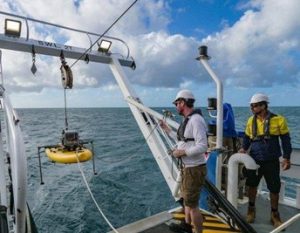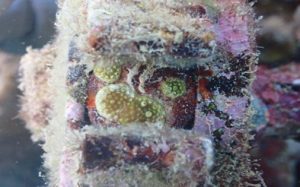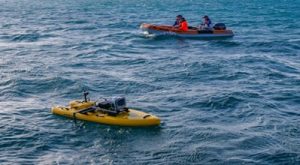
Surfbee’s Flow Seeker USV: Revolutionary marine restoration technology
In the vibrant but fragile underwater world of coral reefs, a beacon of hope shines with the pioneering efforts of Surfbee. Their flagship product, the Flow Seeker, is not just a marvel of unmanned marine technology, it is also a crucial ally in our quest to preserve precious coral ecosystems.
Characterized by its sensor-agnostic capabilities, the Flow Seeker can adapt to a broad spectrum of monitoring tools, making it an asset for varied marine research initiatives. This adaptability allows researchers to equip the vessel with a range of different sensors, custom-selected for specific investigative needs, such as water quality, temperature monitoring, and more. The flexibility of the Flow Seeker empowers scientists and conservationists to tailor their methods to unique coral conditions, making the technology transformative in environmental stewardship.
Resilient coral reproduction despite global decline
The clock is ticking for coral populations facing a global decline due to the escalating effects of climate change. Warmer seas, acidification, and extreme weather events are all responsible for driving losses in our coral reefs.

Healthy coral colonies growing on fixed coral seeding device. Photo C Randall
However, the annual mass coral spawning event on the Great Barrier Reef offers great promise, particularly when combined with innovative marine restoration technologies.
Annually, corals engage in a natural phenomenon with the synchronized release of eggs and sperm, naturally enhancing the odds of fertilization. This event results in the ascent of countless gamete bundles to the ocean’s surface. The bundles grow larvae that then, in time, settle back onto the reefs, beginning a new generation of coral. The practice of coral seeding has become a cornerstone in conservation efforts by enhancing this natural process and helping to restore these endangered underwater landscapes.

Surfbee’s Flow Seeker in action
Flow Seeker: A Game-Changer for Coral Seeding
Surfbee’s Flow Seeker enhances the efficacy of coral seeding, which is extremely valuable considering only a fraction of coral larvae reach maturity. This autonomous technology, equipped with advanced navigation and precise mapping systems, deploys coral seeding devices. Furthermore, its sensor-agnostic design means that it can be used with various sensors for comprehensive water monitoring, playing a crucial role in identifying factors that could lead to reef degradation. By detecting changes in water quality or temperature that signal potential threats, proactive measures can be taken to prevent the loss of reefs.
Moreover, the Flow Seeker’s adaptability makes it an excellent tool for collecting coral spawn with minimal disturbance during mass spawning events. At the other end of the process, lab-cultivated larvae can be introduced into the natural habitat thanks to the Flow Seeker’s precise placement capabilities. The device provides the greatest potential for survival and growth, thus supporting the entire seeding process from collection to maturation.
The multitasking Flow Seeker is more than just a vessel: It offers a range of invaluable services to marine conservation and is helping steer our oceans towards a brighter future.





